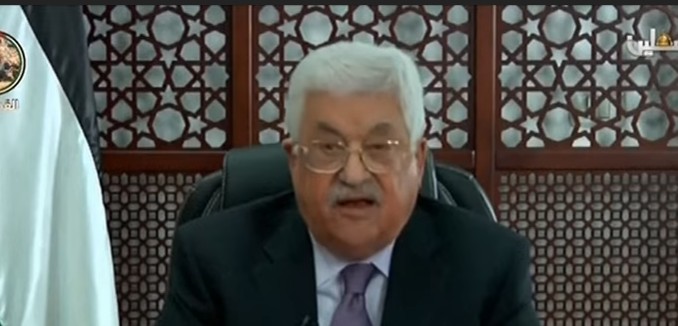Two news events this week underscored that the biggest impediment to Israeli-Palestinian peace is the inability or the refusal of the Palestinian Authority to govern effectively.
In the first case, a convoy carrying PA Prime Minister Rami Hamdallah through Gaza was struck by an explosion damaging three cars and reportedly injuring one. Though no group has claimed credit, many, including the PA, have blamed Hamas, because it maintains strict military and political control over Gaza, meaning that even if the Hamas government was directly responsible for the bomb, it likely knew who was responsible.
Hamdallah was on his way to the inauguration of a new sewage treatment plant inside the Hamas-ruled territory. The plant is being powered through an agreement between Israel and the PA, but a more permanent arrangement, possibly a dedicated power line directly from Israel, is still being sought.
Hamas diverts concrete that is meant for civilian use, and uses it to build tunnels to attack Israel. Most recently, the terror group was videoed stealing electricity from civilian use.
Although Hamas and the Palestinian Authority arrived at a power sharing agreement late last year that included handing over security control of Gaza to the PA, Hamas has refused to give up its weapons. This prompted PA police commander Hazem Atallah to tell reporters that Hamas’s refusal made reconciliation impossible. “It is impossible. How can I do security when there are all these rockets and guns? Is this possible? It doesn’t work,” Atallah said.
The ongoing power struggle between Hamas and the PA isn’t about governing, but about control. Hamas wants more control over the Palestinians, and the PA, which is dominated by the Fatah political party, doesn’t want to give up any more power. Neither is particularly geared towards governing.
But with a divided leadership, any agreement Israel reaches with the PA will be worthless, because Hamas, which represents roughly 38% of the Palestinians in the West Bank and Gaza still seeks Israel’s destruction.
If the PA had the military might to retake Gaza, this might not be a problem, but it doesn’t. Hamas expelled the PA from Gaza in 2007 and, in the ensuing decade, Hamas has only gotten stronger.
This week there was an international summit to provide humanitarian relief for Gaza held at the White House. Israel was there. So were Saudi Arabia, Qatar, Egypt, Jordan, Bahrain, United Arab Emirates, Bahrain, and Oman. The PA, however, was not in attendance as it was boycotting the United States after President Donald Trump announced his recognition of Jerusalem as capital of Israel.
In announcing the summit, the administration’s Special Representative for International Negotiations Jason Greenblatt said the goal of the gathering was to focus on “improving the humanitarian challenges in Gaza,” but to do it in way that ensures “that we do not inadvertently empower Hamas, which bears responsibility for Gaza’s suffering.”
In other words, the PA, which claims to represent all Palestinians, had an opportunity to be involved in easing conditions for the 1.7 Palestinians that live in the Gaza Strip and to politically undermine Hamas at the same time, but refused to do so because it doesn’t like a decision taken by the U.S. that should not have any effect on the final status of peace talks.
This reaction of the PA – rejecting a concrete effort to improve the lives of Palestinians – resembles a tantrum, not diplomacy undertaken by a national leader.
The stubborn refusal to act isn’t new for Abbas. Even during the previous administration, when President Barack Obama was more sympathetic, it was Abbas who blocked the administration’s two major peace initiatives. In 2015, Abbas admitted that he rejected a peace offer from then-Israeli Prime Minister Ehud Olmert in 2008.
Abbas’s reactions to peace initiatives, or even improving the lives of Palestinians, could be described as passive aggressive. Maybe that’s what the PA really stands for.
In any case, Abbas appears to want statehood to be handed to him on his own terms. He refuses to do the hard work of negotiating and, if necessary, making compromises.
Abbas has the status of a world leader, who speaks before the United Nations and is feted in world capitals. He has used his position to accumulate wealth, often illicitly, for himself and his family.
It would appear that Abbas is happy where he is, achieving a position of power and prominence without the responsibilities of governing. Maintaining the status quo – and his perception of indispensability – is best achieved by blocking any initiative that could lead to statehood, independence, and peace.
It is Mahmoud Abbas’s passive aggressiveness that is the biggest impediment to Palestinian statehood, and, ultimately, to Israeli-Palestinian peace.
[Photo: FRANCE 24 English / YouTube]




